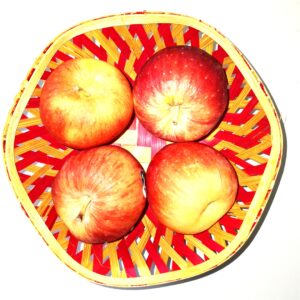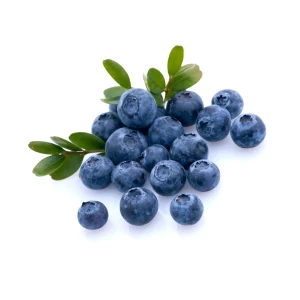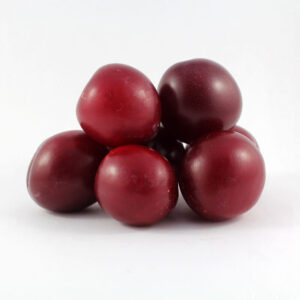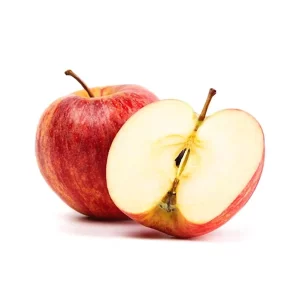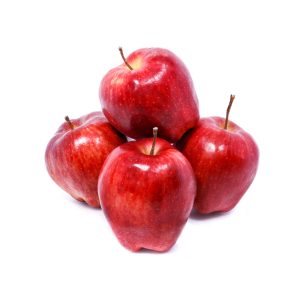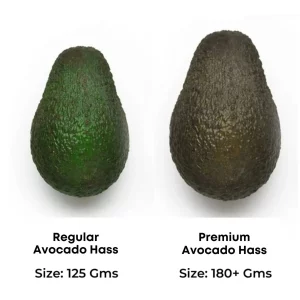There’s something magical about a peach—its soft, fuzzy skin and burst of sweet flavour make it a summer favourite. But peaches are more than just a delicious treat. Beneath that golden skin lies a wealth of nutrients that can do wonders for your health. From promoting a healthier heart to enhancing your digestion and even giving your skin a youthful glow, this humble fruit packs a powerful punch. Curious to learn how this seasonal delight can transform your well-being? Let’s explore the surprising benefits of adding peaches to your plate.
Nutritional Content
Peaches are a nutrient-rich fruit that provide a variety of vitamins, minerals, and antioxidants. Here’s the nutritional content of a medium-sized peach (about 100 grams):
| NUTRITION | CONTENT |
| Energy | 42 kcal |
| Protein | 0.91 g |
| Fat | 0.27 g |
| Carbohydrate | 10.1 g |
| Fibre | 1.5 g |
| Sugars | 8.39 g |
| Calcium | 4 mg |
| Iron | 0.34 mg |
| Magnesium | 8 mg |
| Phosphorus | 22 mg |
| Potassium | 122 mg |
| Sodium | 13 mg |
| Vitamin C | 4.1 mg |
| Vitamin E | 0.73 mg |
Peaches are also a good source of antioxidants like polyphenols and carotenoids, which contribute to their health benefits.
Health Benefits of Peaches
Heart Health
Peaches may contribute to better heart health due to their high levels of potassium, fibre, and antioxidants. Potassium helps regulate blood pressure by balancing sodium levels in the body, reducing the risk of hypertension, a leading cause of heart disease. Additionally, peaches contain antioxidants such as vitamin C and polyphenols, which have been shown to reduce oxidative stress, a contributing factor in cardiovascular diseases . Fiber found in peaches can also help lower cholesterol levels, further promoting heart health .
Improved Digestion
Peaches are a good source of dietary fibre, which supports healthy digestion. The fibre content promotes regular bowel movements and prevents constipation by adding bulk to the stool. Peaches also contain bioactive compounds such as sorbitol, which acts as a mild laxative and helps in reducing symptoms of indigestion . Including peaches in the diet may aid in maintaining a healthy digestive system by improving gut motility and supporting the balance of gut bacteria .
Decreased Inflammation
Peaches are rich in phytonutrients, such as flavonoids and phenolic compounds, which have anti-inflammatory properties. These compounds help neutralise free radicals, which are molecules that cause inflammation and damage cells . Chronic inflammation is linked to various health conditions such as arthritis and heart disease, and the regular consumption of peaches may help reduce inflammation and its associated risks .
Stronger Immune System
Peaches contain high levels of vitamins A and C, both of which play crucial roles in immune function. Vitamin C is a powerful antioxidant that supports the production of white blood cells, which defend the body against infections. Vitamin A helps maintain the integrity of the skin and mucous membranes, which are the body\’s first line of defence against pathogens . These vitamins, along with other immune-boosting nutrients like zinc and selenium, make peaches an excellent addition to an immune-supportive diet .
Healthy Eyes
The vitamin A content in peaches, derived from beta-carotene, is essential for maintaining eye health. Beta-carotene is converted into retinol, a form of vitamin A that supports vision, especially in low-light conditions . Peaches also contain lutein and zeaxanthin, antioxidants that protect the eyes from harmful UV rays and reduce the risk of cataracts and age-related macular degeneration . Consuming peaches regularly may promote better eye health and prevent vision problems associated with ageing.
Smoother Skin
Peaches are rich in vitamins and antioxidants that support healthy skin. Vitamin C, in particular, plays a role in collagen production, which helps maintain the skin’s elasticity and reduces signs of ageing . Additionally, the antioxidants found in peaches protect the skin from damage caused by UV rays and environmental pollutants. Regular consumption of peaches may lead to smoother, more radiant skin due to their ability to promote skin cell regeneration and hydration .
Antioxidant Properties
Peaches are loaded with antioxidants, such as vitamin C, chlorogenic acid, and flavonoids, which protect the body from oxidative stress. These antioxidants neutralise free radicals, reducing the risk of chronic diseases such as cancer and heart disease . The high antioxidant activity of peaches helps support cellular health and overall well-being by preventing damage at the molecular level.
Effect on Constipation
The natural fibre and sorbitol in peaches make them effective in relieving constipation. Fibre adds bulk to the stool and promotes regular bowel movements, while sorbitol acts as a mild osmotic laxative, drawing water into the intestines to soften the stool . For those experiencing occasional constipation, including peaches in the diet can improve digestion and promote regularity, without the harsh effects of chemical laxatives.
When to Avoid Peaches
-
Fruit Baskets
An Apple A Day Basket (Assorted) – 4pc
₹212.00Original price was: ₹212.00.₹148.00Current price is: ₹148.00. -
Fruit Baskets
Valentine Special Basket (Assorted) – 9 pc
₹599.00Original price was: ₹599.00.₹499.00Current price is: ₹499.00. -
Berries and Grapes
Blueberry (Peru)
₹280.00Original price was: ₹280.00.₹224.00Current price is: ₹224.00. -
Exotic Fruits
Plum (China) – 6pc
₹120.00Original price was: ₹120.00.₹84.00Current price is: ₹84.00. -
Apples and Pears
Apple Royal Gala (Turkey) – 2pc
₹95.00Original price was: ₹95.00.₹67.00Current price is: ₹67.00. -
Apples and Pears
Apple Red Delicious (Turkey) – 2pc
₹117.00Original price was: ₹117.00.₹82.00Current price is: ₹82.00. -
Apples and Pears
Pear Green (South Africa) – 2pc
₹150.00Original price was: ₹150.00.₹130.00Current price is: ₹130.00. -
Exotic Fruits
Kiwi Green (Chile) – 3pc
₹152.00Original price was: ₹152.00.₹106.00Current price is: ₹106.00. -
Exotic Fruits
Avocado Hass (Tanzania) – 1pc
₹150.00Original price was: ₹150.00.₹105.00Current price is: ₹105.00.
Allergy:
Individuals with a peach allergy may experience symptoms like itching, swelling, or hives, and in severe cases, anaphylaxis. Those with oral allergy syndrome (OAS) might have itching or swelling in the mouth and throat. Consult a healthcare professional if you suspect an allergy.
Pesticide Exposure:
Peaches often have higher pesticide residues and are listed among the \”Dirty Dozen.\” To reduce exposure, consider buying organic peaches or wash them thoroughly before eating. This is particularly important for pregnant women and young children.
Irritable Bowel Syndrome (IBS):
People with IBS may experience digestive discomfort from peaches due to their fructose and sorbitol content, which can cause bloating and gas. If you have IBS, limit peach intake and consult a healthcare provider for dietary advice.
Variety of Peaches
Yellow-Flesh Peaches :
Yellow-flesh peaches are the most commonly found variety and are characterised by their vibrant yellow-orange flesh. These peaches are known for their sweet, tangy flavor and juicy texture, making them ideal for eating fresh, baking, and canning. They are typically rich in antioxidants and vitamins, contributing to their popularity.
White-Flesh Peaches :
White-flesh peaches have a milder, sweeter flavour compared to their yellow counterparts. Their flesh is creamy white, often with a hint of red near the pit. These peaches are great for fresh eating and are favoured for their smooth texture and delicate taste, perfect for desserts and salads.
Clingstone Peaches :
Clingstone peaches are characterised by their flesh that clings tightly to the pit, making them more challenging to pit. They are often juicier and sweeter than other varieties, making them ideal for canning and making jams. Their sweetness and high juice content make them a favourite for cooking and baking.
Freestone Peaches :
Freestone peaches are known for their flesh that easily separates from the pit, making them convenient for eating and cooking. They are typically larger and sweeter than clingstone peaches and are often used in fresh dishes, salads, and desserts. Their ease of preparation makes them popular for home cooks.
“Filina” Peaches :
The “Filina” peach is a less common variety known for its firm texture and sweet flavour. It is typically medium to large in size, with a rich yellow colour. This variety is great for fresh eating and can be used in a variety of culinary applications, including pies and salads.
“July Lady” Peaches :
“July Lady” peaches are early-season peaches with a beautiful yellow-orange colour and sweet flavour. They are freestone peaches, making them easy to prepare for fresh eating, baking, or canning. Their juicy and aromatic flesh makes them a summer favourite.
“Laskava” Peaches :
The “Laskava” peach is known for its excellent flavour and smooth, yellow flesh. This variety is typically large and has a sweet, juicy profile, making it perfect for fresh eating. It is also suitable for canning and preserves, offering versatility in the kitchen.
“Gergana” Nectarines :
The “Gergana” nectarine is a smooth-skinned variety with a sweet and aromatic flavour. This nectarine is known for its firm flesh and juicy texture, making it ideal for snacking, salads, and desserts. Its smooth skin differentiates it from traditional peaches, offering a unique eating experience.
“Ufo 4” Flat Peaches :
The “Ufo 4” flat peach, also known as doughnut peach, has a distinctive flattened shape and sweet, aromatic flavour. Its unique appearance and low acidity make it a fun addition to fruit salads or as a fresh snack. This variety is known for its tenderness and juicy flesh, appealing to those who enjoy a unique fruit experience.
Popular Ways to Consume Peach
Peaches are versatile and can be enjoyed in many delicious ways. Here are some popular methods to consume peaches:
Fresh and Raw: Simply wash and bite into a juicy peach. This is the easiest way to enjoy their natural sweetness.
Salads: Add sliced peaches to salads for a sweet twist. They pair well with greens, nuts, and cheeses like feta or goat cheese.
Smoothies: Blend peaches with yoghurt, milk, or other fruits for a refreshing smoothie. They add a nice creaminess and flavor.
Baked Goods: Use peaches in pies, tarts, or cobblers. Their natural sweetness makes them perfect for desserts.
Peach Juice: Juice fresh peaches or blend them and strain for a delicious drink.
Myths and Facts about Peaches
Myth: Peaches are only good for summer.
Fact: While peaches are in season during summer, they can be enjoyed year-round. Canned or frozen peaches retain many of their nutrients and flavours.
Myth: Eating peach skin is harmful.
Fact: Peach skin is edible and packed with nutrients, including fibre and antioxidants. Washing peaches thoroughly removes any pesticide residues, making the skin safe to eat.
Myth: Peaches are only used in desserts.
Fact: While peaches are popular in desserts, they can also be used in savoury dishes, salads, salsas, and even grilled for a smoky flavour.
Myth: All Peaches Have the Same Flavour
Fact: There are different varieties of peaches, such as clingstone and freestone, and they can vary in sweetness, tartness, and flavour.
Key Takeaways
Peaches are not only a delicious summer fruit but also offer numerous health benefits. They support heart health through potassium, fibre, and antioxidants, which help regulate blood pressure and reduce oxidative stress. Their dietary fibre promotes digestion and regular bowel movements, while phytonutrients provide anti-inflammatory effects. Peaches are rich in vitamins A and C, boosting the immune system and promoting eye health by protecting against vision problems. They also support skin health by aiding collagen production and protecting against UV damage. However, individuals with allergies, those concerned about pesticide exposure, or those with irritable bowel syndrome should approach peach consumption with caution. Enjoying peaches can enhance overall well-being and add flavour to a healthy diet!
-
Fruit Baskets
An Apple A Day Basket (Assorted) – 4pc
₹212.00Original price was: ₹212.00.₹148.00Current price is: ₹148.00. -
Fruit Baskets
Valentine Special Basket (Assorted) – 9 pc
₹599.00Original price was: ₹599.00.₹499.00Current price is: ₹499.00. -
Berries and Grapes
Blueberry (Peru)
₹280.00Original price was: ₹280.00.₹224.00Current price is: ₹224.00. -
Exotic Fruits
Plum (China) – 6pc
₹120.00Original price was: ₹120.00.₹84.00Current price is: ₹84.00. -
Apples and Pears
Apple Royal Gala (Turkey) – 2pc
₹95.00Original price was: ₹95.00.₹67.00Current price is: ₹67.00. -
Apples and Pears
Apple Red Delicious (Turkey) – 2pc
₹117.00Original price was: ₹117.00.₹82.00Current price is: ₹82.00. -
Apples and Pears
Pear Green (South Africa) – 2pc
₹150.00Original price was: ₹150.00.₹130.00Current price is: ₹130.00. -
Exotic Fruits
Kiwi Green (Chile) – 3pc
₹152.00Original price was: ₹152.00.₹106.00Current price is: ₹106.00. -
Exotic Fruits
Avocado Hass (Tanzania) – 1pc
₹150.00Original price was: ₹150.00.₹105.00Current price is: ₹105.00.



